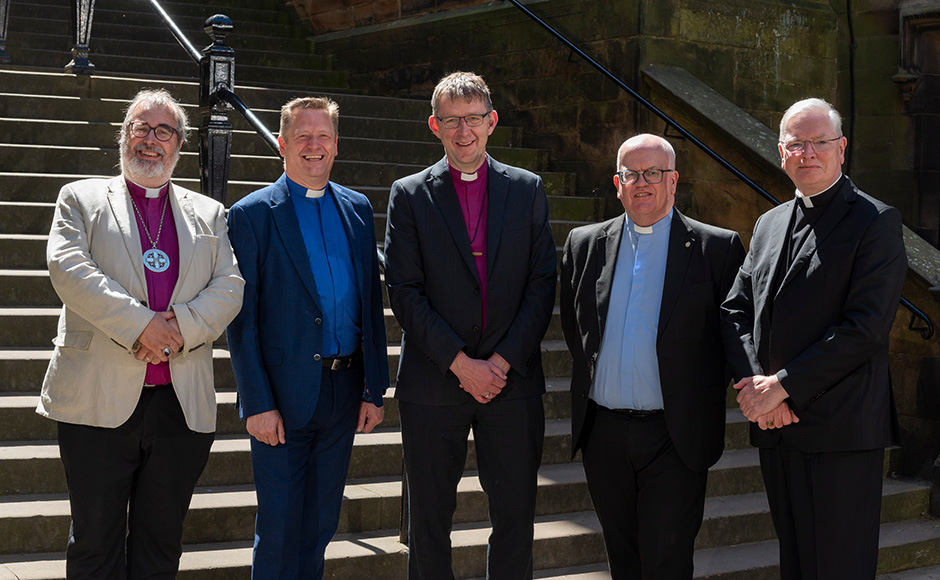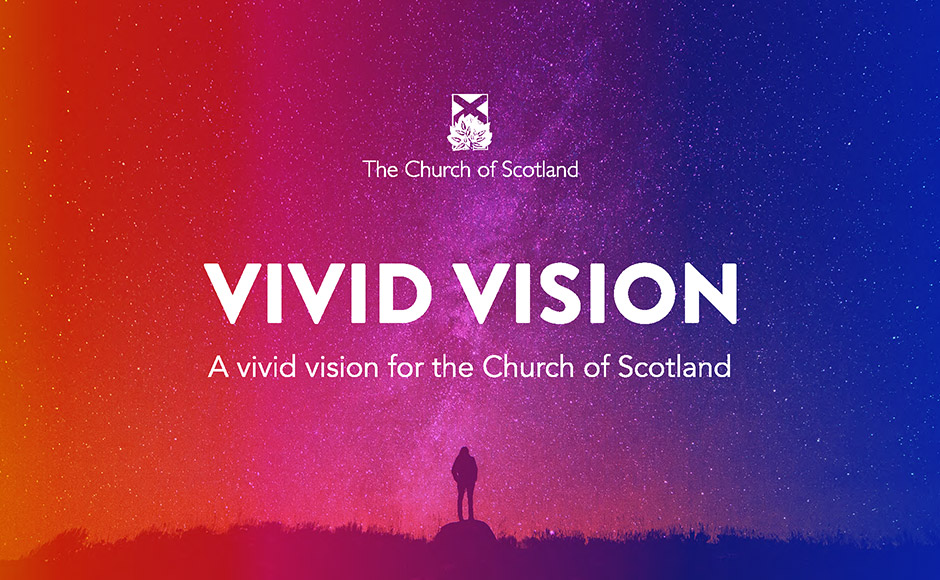General Assembly hears an ecumenical vision for the Church Universal
Published on 21 May 2025 3 minutes read
Rev Ross Blackman, convener of the Ecumenical Relations Committee, presented the committee's report which lays out a vision of the Church of Scotland as an active and essential part of the Catholic and Universal Church.

Celebrating its 1700th anniversary this year, the Council of Nicaea, held in 325AD, brought believers together from all corners of the Christian world and created the foundational Nicene creed, which affirmed their common faith in the one God: God the Father, God the Son and God the Holy Spirit.
The council took Christianity from being a persecuted religion to gaining an official status that shaped the future of the Church.
"In celebrating that milestone year we are reminded that we hold far more in common with all other forms of orthodox and mainstream Christianity than our differences" Mr Blackman said.
"In essentials unity, in non-essentials liberty, in all things, love". This year we add, "extravagant love", as we are reminded of each of these aspects within our broad church."
After several years of work led by the Theological Forum, this year's General Assembly agreed to introduce a new Book of Confessions where the Nicene Creed and the Apostles Creed will be added to the vows taken by ministers.
Across the Church - nationally, locally and internationally – the ecumenical vision for the Church Universal opens up a wide range of opportunities for collaborating and sharing resources. Churches that confess faith in Christ together can make space for diverse viewpoints.
A number of ecumenical delegates were present at the General Assembly to hear Mr Blackman's speech including Rt Rev Rob Saner-Haigh, Bishop of Penrith, Most Rev Leo Cushley, Archbishop of St Andrews and Edinburgh, and Most Rev Mark Strange, Primus and Bishop of Moray, Ross and Caithness.
On a practical level, in recent years the Church has entered into a series of Declarations with partner churches:
The Columba Declaration with the Church of England (2016);
The Saint Andrew Declaration with the Scottish Episcopal Church (2021) and
The Saint Margaret Declaration with the Catholic Bishops' Conference of Scotland (2022).
Looking forward the Church is engaging with the United Reformed Church and working towards a similar declaration that recognises a shared tradition and faith. The formation of the Scottish Christian Forum, the Scottish Church Leaders' Forum and the Ecumenical Officers' Forum are other examples of the way the Church is working closely with other denominations on a national level.
On an international level the Church participates in ecumenical bodies, including the Communion of Protestant Churches in Europe, the World Council of Churches, and the Conference of European Churches. The depth and impact of the Church's ecumenical engagement has resulted in invitations to meet representatives of partner churches as well as forging cooperative working relations.
"From the local and national through to the international, we present what we hope might be an informative set of visions for our work with other denominations and ecumenical bodies, where we continue to punch above our weight," Mr Blackman said.
Closer to home the Presbytery Mission Act contains ecumenical guidelines that enable presbyteries and individual churches to partner with other denominations where it would further the presbytery plan. This could include shared buildings, shared worship, shared missional activities, shared decision making and shared ministry – when appropriate and in accordance with Church law.
Mr Blackman is optimistic about the future of the Church.
"Have you noticed how green shoots of growth are being observed in congregations throughout our denominations?" he asked. "Across the age groups, it would appear that young families, youths, newly retired and mostly unchurched folk, are seeking the gospel to understand and express a slowly awakening spirituality.
"After I bewailed the isolationism of lockdown, two years ago in these halls, I now wonder how well prepared we might be to respond to what God is doing under our noses?
"In this 1700th anniversary of the Council of Nicaea, we are offered an enriched vision of how the people of God might "gather to worship and to bear witness to the one Lord" at every level of the church universal. May we continue to commit ourselves to prayer for each other and the work of God in our midst, working together in extravagant love, under the direction of our Lord Jesus Christ."


